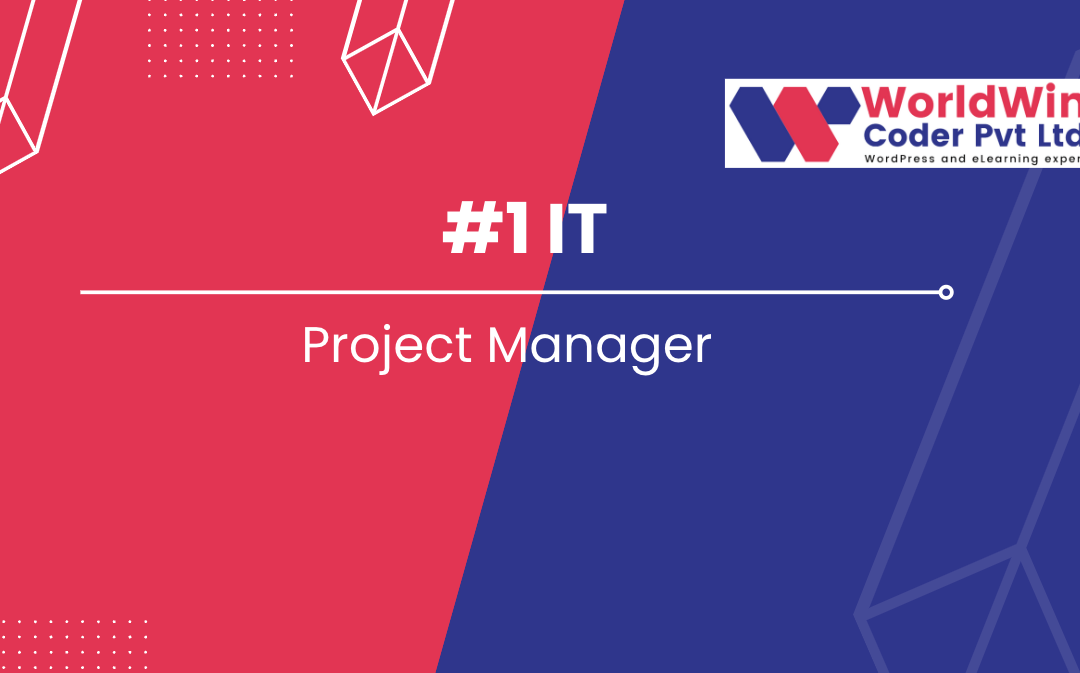
8 Key Project Manager Roles And Responsibilities
8 Key Project Manager Roles And Responsibilities
Role of an IT Project Manager is critical to the success of technology projects. They must possess a combination of technical and business skills, including an understanding of software development processes, project management methodologies, and effective communication and leadership abilities. With the right education, certifications, and skills, an IT Project Manager roles can lead teams towards the successful completion of technology projects, ensuring that project goals are met and stakeholders are satisfied.
Introduction
- Definition of an IT Project Manager
An IT Project Manager is a professional responsible for leading a team of individuals towards the successful completion of a software development or technology-related project. They ensure that the project is completed on time, within budget, and to the satisfaction of stakeholders. - Overview of the role and responsibilities of an IT Project Manager
An IT Project Manager must possess a combination of technical and business skills, including an understanding of software development processes, project management methodologies, and the ability to communicate effectively with both technical and non-technical team members and stakeholders.
1. Project Planning
- Defining project scope
The Project Manager is responsible for defining the boundaries of the project and determining what will be included and excluded from the project scope. - Setting project goals and objectives
The Project Manager must set clear and achievable goals and objectives for the project, which will serve as the foundation for the project plan. - Creating a detailed project plan
The Project Manager is responsible for creating a comprehensive project plan that outlines the project timeline, resources, and budget. The project plan should provide a roadmap for the project, helping to ensure that all stakeholders are aligned and that the project stays on track.
2. Resource Allocation
- Ensuring necessary resources are available
The Project Manager must ensure that the necessary resources, including personnel and equipment, are available to the project team. - Allocating resources to the project team
The Project Manager must allocate resources effectively, ensuring that the project team has everything they need to complete their tasks.
3. Risk Management
- Identifying potential risks
The Project Manager must be proactive in identifying potential risks to the project and assessing their impact. - Implementing risk mitigation strategies
The Project Manager must develop and implement risk mitigation strategies to minimize the impact of potential risks on the project.
4. Budget Management
- Monitoring project expenses
The Project Manager must closely monitor project expenses and ensure that the project stays within its approved budget. - Keeping the project within budget
The Project Manager must work closely with the project team to control costs and ensure that the project remains within budget.
5. Team Management
- Motivating and mentoring the project team
The Project Manager must motivate and mentor the project team, ensuring that they are working effectively towards project goals. - Ensuring effective collaboration towards project goals
The Project Manager must foster a collaborative environment that encourages teamwork and helps to resolve conflicts.
6. Stakeholder Management
- Maintaining good relationships with stakeholders
The Project Manager must maintain good relationships with stakeholders, including project sponsors, customers, and team members. - Communicating project status and risks to stakeholders
The Project Manager must communicate project status, issues, and risks to stakeholders to keep them informed and ensure their expectations are met.
7. Quality Control
- Ensuring project deliverables meet quality standards
The Project Manager must ensure that the project deliverables meet the required quality standards. This includes conducting quality assurance tests and ensuring that all deliverables are of the required quality before they are accepted by stakeholders.
8. Qualifications of an IT Project Manager
- Education and Certifications
A bachelor’s degree in computer science, information systems, or a related field is typically required for an IT Project Manager roles. However, some employers may prefer or require a master’s degree in project management or a related field. In addition, obtaining Project Management Professional (PMP) certification demonstrates the Project Manager’s knowledge and commitment to project management principles and best practices. Other relevant certifications include Certified Scrum Master (CSM), Certified Associate in Project Management (CAPM), and Six Sigma Green Belt. - Technical Skills
An IT Project Manager must possess a strong understanding of software development processes and technology, including knowledge of programming languages, database systems, and software architecture. They must also be proficient in project management software and tools, such as Microsoft Project and JIRA. - Communication and Leadership Skills
Effective communication is crucial for an IT Project Manager. They must be able to effectively communicate project goals, risks, and progress to stakeholders, as well as provide direction and guidance to the project team. Strong leadership skills are also essential, as the Project Manager must be able to motivate and inspire the team to achieve project goals. - Problem-Solving and Decision-Making Skills
An IT Project Manager must have the ability to analyze complex information, identify potential problems, and develop and implement effective solutions. They must also have strong decision-making skills and the ability to make informed decisions in a fast-paced and dynamic environment. - Adaptability and Flexibility
An IT Project Manager must be adaptable and flexible, able to respond to changes in project scope, budget, and resources. They must be able to effectively manage multiple projects and priorities, and must be comfortable working in a fast-paced and constantly evolving environment.
In conclusion
The role of an IT Project Manager is critical to the success of technology projects. They must possess a combination of technical and business skills, including an understanding of software development processes, project management methodologies, and effective communication and leadership abilities. With the right education, certifications, and skills, an IT Project Manager can lead teams towards the successful completion of technology projects, ensuring that project goals are met and stakeholders are satisfied.

